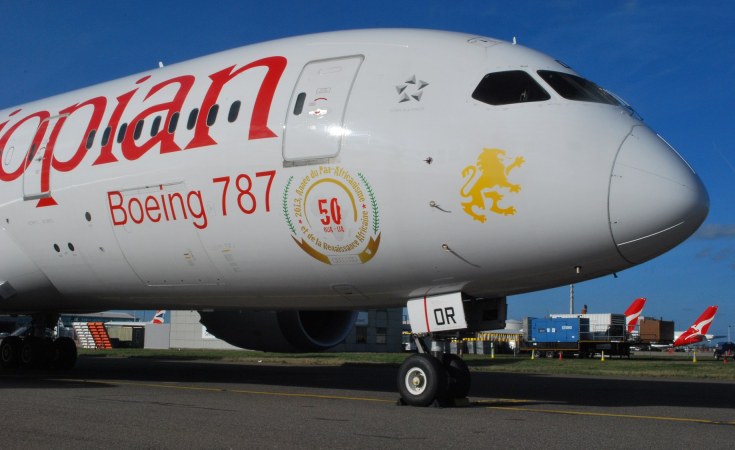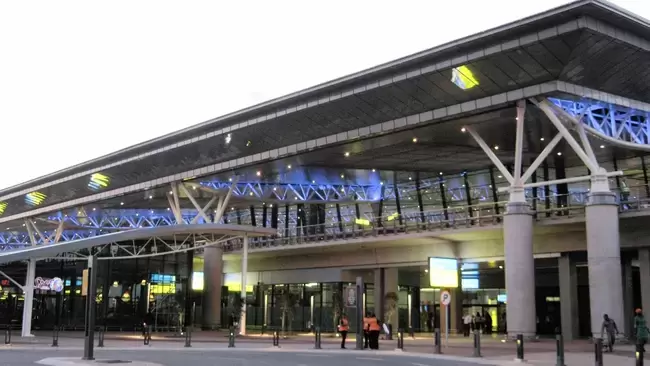|
Plane loads of tourists aboard Ethiopian, KLM and Turkish airlines are expected to land in Tanzania in the next one week, marking a critical milestone in the on-going re-opening of the country's economy following nearly two months of lockdown. The country's commercial capital, Dar es Salaam, hotels and schools are all heeding President John Magufuli's directive to re-open the entire economy following what he termed as significantly reduced cases of coronavirus patients in the country. The president, in a public address in the capital city, Dodoma, said there is no longer a need to curtail economic activity while hospitals across Tanzania had empty beds having discharged nearly all Covid-19 positive patients after they tested negative for the virus. Tanzania has not reported its national tally of Covid-19 positive cases since April 29. Its official toll remains at 509 with 21 deaths as at May 7, when the semi-autonomous Zanzibar island last announced its numbers. It becomes the first East African nation to reopen, charting a new path in the management of the deadly virus that has infected more than 5.1 million people across the world and killed over 333,000 in about six months. The country's airspace opened for international arrivals on May 18. Among the six East African Community member countries, Kenya, Uganda and Rwanda have the strictest travel restrictions while Burundi and South Sudan have also issued public health advisories to curb the spread of the virus.
INTERNATIONAL ARRIVALS A chartered plane with four Greek nationals onboard landed at the Kilimanjaro International Airport on May 21. The visitors proceeded straight to sample the country's tourist attractions after the lifting of a 14-day mandatory quarantine that had been imposed on April 4. Entrants into the country will now only have their temperatures checked on arrival, as per new guidelines issued by the Ministry of Health. Tourism is a critical sector of Tanzania's economy, contributing about 17 per cent to the annual Gross Domestic Product and employing an estimated 623,000 workers. About 1.9 million tourists visited the country's parks and beaches last year, injecting $2.5 billion into the economy according to data from the Ministry of Natural Resources. The country estimates that a continued shutdown of its borders would have drastically reduced earnings from tourism by 75 per cent. Majority of the tourists who booked their travel prior the pandemic postponed their trips to next year. President Magufuli also announced that High School candidates whose final examinations were postponed in May will resume classes on June 1. He instructed the education ministry to prepare a special programme to prepare them for the final exams later this year and enable them to join universities without interrupting the academic calendar. Primary and junior secondary schools will however remain closed. Some European countries, which form the bulk of Tanzania's tourists, have started re-opening their economies after months of shutdowns. The UK, France, Ireland, Greece, Spain, Turkey and Iceland have all announced variations of relaxations in their lockdowns that will even see them partially re-open their airspaces. "We're resuming our tourism activities, getting ready to receive international tourists from all over the world especially now that nations have started lifting lockdowns," said Hamisi Kigwangalla, the Minister for Natural Resources and Tourism. Turkish Airlines announced that it expects to resume international flights on June 1. "Dear passengers, in accordance with decisions taken by the official authorities, all international flights have been suspended until June 1 in order to protect public health against the Covid-19 pandemic," reads a statement published on the airline's website. According to Dr Kigwangalla, both the Ethiopian Airways flight -- expected on June 1 -- and the Turkish Airlines flight are fully booked. "We have set several health measures including onboard passengers to submit proof that they have tested negative for negative," he said. Ummy Mwalimu, the Tanzania Health Minister, said in a statement on May 18, that they had eased the country's travel advisory "following a decreased trend of admitted Covid-19 cases in the country". The reviewed travel advisory has outlined seven measures intended to accommodate international arrivals. All entrants will be required to fill out travellers' surveillance forms and submit to Port Health Authorities upon arrival. They will be required to adhere to Infection Prevention and Control measures, which include hand hygiene, wearing masks and physical distancing as appropriate to avoid further spread of the virus. Flight operators will be given instructions on how to clean and disinfect their aircraft before and after landing in the country. FULL RECOVERY On May 17, President Magufuli announced the full recovery of coronavirus patients across the country. Speaking at a Sunday service at the Evangelical Lutheran Church in his hometown, Chato, the president said the majority of inpatients with Covid-19 had recovered from the disease. He said Dar es Salaam had only 132 cases, Arusha, the tourist hub, had 11 patients, Mwanza six patients and Dodoma two, down from 40 confirmed cases. "Majority are in stable condition but still test positive of the virus," said President Magufuli. He added that colleges and universities would resume classes and sports activities would re-open if the numbers remained low. All commercial passenger flights, diplomatic flights, emergency aircraft related to humanitarian aid and medical relief are now allowed into the country without restrictions.
2 Comments
The Airports Company of SA is preparing for the resumption of domestic air travel under lockdown alert level 3 and will have the country’s three major airports ready for flights on June 1.
Acsa chief executive Nompumelelo Mpofu presented the organisation’s proposals for new post-Covid-19 operating procedures at the country’s airports to the Parliamentary portfolio committee on transport on Monday. “We are ready to implement level 3 primarily in the three big airports (Durban, Joburg and Cape Town) on June 1, and further work is to be done with the Department of Transport around the specifics,” she said. Mpofu highlighted the journey of a traveller through the airport, saying that access to the airport terminal would be restricted to travellers only, and “meet-and-greet” access would not be permitted. “We are currently on level 4 where basically only cargo and repatriation flights are permitted and all other flights are restricted. We are working only on essential services at airports and remote working for non-essential services,” Mpofu said. “The level 3 that we are all looking forward to would prescribe limited domestic air travel through the restriction of the number of flights per day and authorisation based on the reasons for travel, and subject to port of entry arrangements.” Mpofu said limited staff would work on site under level 3 with other staff continuing to work remotely. She said Acsa had prepared its post-Covid-19 operational readiness plan in consultation with the Airports Council International Africa and the Department of Transport. “We have prepared and finalised the plans in consultation with the Department of Transport, and some of what we have presented we are still in consultation on. “We are also consulting with the CAA (Civil Aviation Authority) so we are all aligned to show our state of readiness for level 3,” she said. “We are changing what happens in the car park and curbside. One of the important principles is to limit terminal access only to travelling passengers, so meet and greet will be restricted on level 3. Health screening will be a critical issue, as will physical distancing,” she said. She added Acsa had reviewed its check-in and security screening procedures to ensure health restrictions and social distancing measures would be met, using markings on the floor. Sanitisation of terminals and baggage would be implemented and the wearing of masks and gloves would be mandatory for staff. “Before lockdown we had widespread terminal disinfection where every two hours we were disinfecting barriers and doorknobs,” she said. Under level 3, cargo operations, repatriation flights and domestic travel would be permitted, Mpofu said. International travel would remain banned. “Our proposal is to prioritise the golden triangle – Johannesburg, Cape Town and Durban – with flights from 6am to 9am and from 3pm to 6pm. “Depending on demand, it can be increased from 6am to 6pm, but not at night,” Mpofu said. “One of the suggestions by aviation was not to sell food on board. This poses a danger to staff. We would rather open a few food outlets in the airport so people are catered for, but only on a takeaway basis,” she said. Mpofu said it was important that an announcement be made early regarding the opening up of domestic travel, to give airlines time to accrue sufficient bookings to be ready to fly on June 1. Presenting to Parliament on the financial position of Acsa, chief financial officer Siphamandla Mthethwa said the firm was in good standing and expecting to grow revenue to about R10 billion, and to post a R4.2bn profit by 2023. However, the firm would lose 50% revenue as a result of the drop in traffic due to Covid-19. Acsa would need Treasury support to finance up to R11bn of new debt by 2025. “New debt of R10bn to R11bn is required in the next five years, and this will require shareholder support in the form of government guarantees,” Acsa said in its parliamentary presentation. Acsa, which also holds concessions at Sao Paulo’s Guarulhos International Airport and Chhatrapati Shivaji International Airport in Mumbai, said about R3bn in guarantees would be required over the next three years. Between 2021 and 2023, its capital expenditure budget was seen at R17.9bn as it developed major projects such as a new runway and terminal at Cape Town airport, Acsa said. In March, ratings agency Moody’s downgraded Acsa to Ba1 from Baa3 with a negative outlook, as expected passenger traffic was seen falling by at least 30% in the financial year to March 2021. Economist Mike Schussler said Acsa was a monopoly that set its pricing, but it had been profitable and should be saved before other failing state-owned enterprises. “I understand their position. They were profitable because they could charge what the market could bear, but the problem comes now that all airports, airlines and car rentals are in very deep trouble,” Schussler said. “South Africa cannot afford another bailout. We have given guarantees to Eskom, SAA, the SABC and now Acsa. I think Transnet is going to worry as well, because their harbours and trains are also not as busy as they were before,” Schussler said. “It’s an unusual situation, so let’s give them a loan guarantee, but then we have to get out of some others. It’s either Acsa or SAA, we can’t do all of them. I would rather do Acsa, because they are more profitable,” Schussler said. “There’s going to be a cry for help from most municipalities and SOEs, and even NGOs are struggling, so we really have to look at what is worth saving and what won’t cost us that much but will pay for itself, like those that made a profit before,” he said. African airlines could lose $6 billion in passenger revenue this year, the International Air Transport Association said last month. |
AuthorAfrica Travel News & Reviews Archives
February 2022
Categories |



 RSS Feed
RSS Feed




